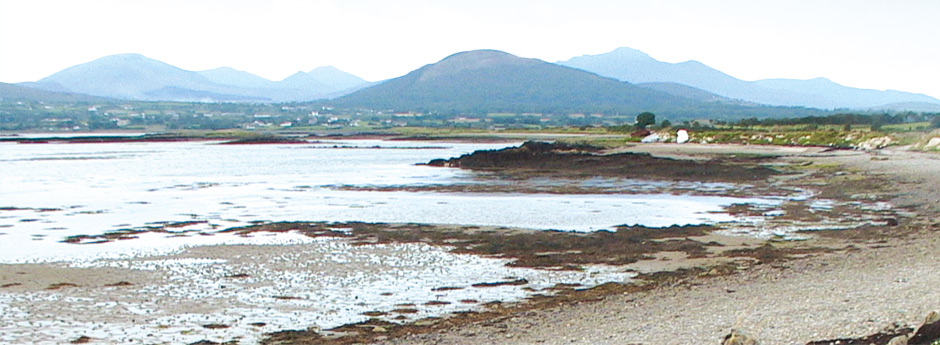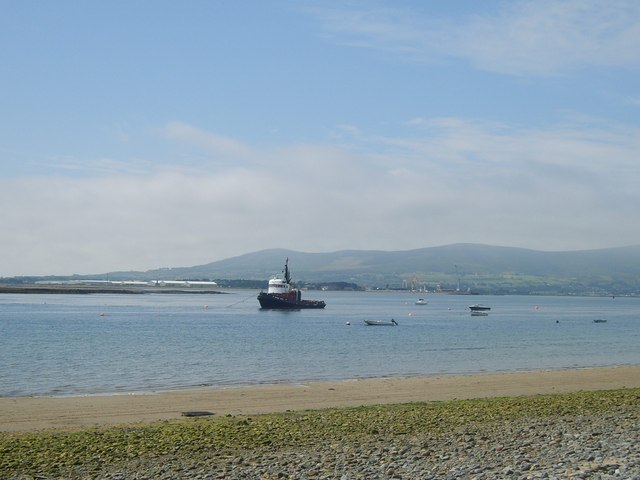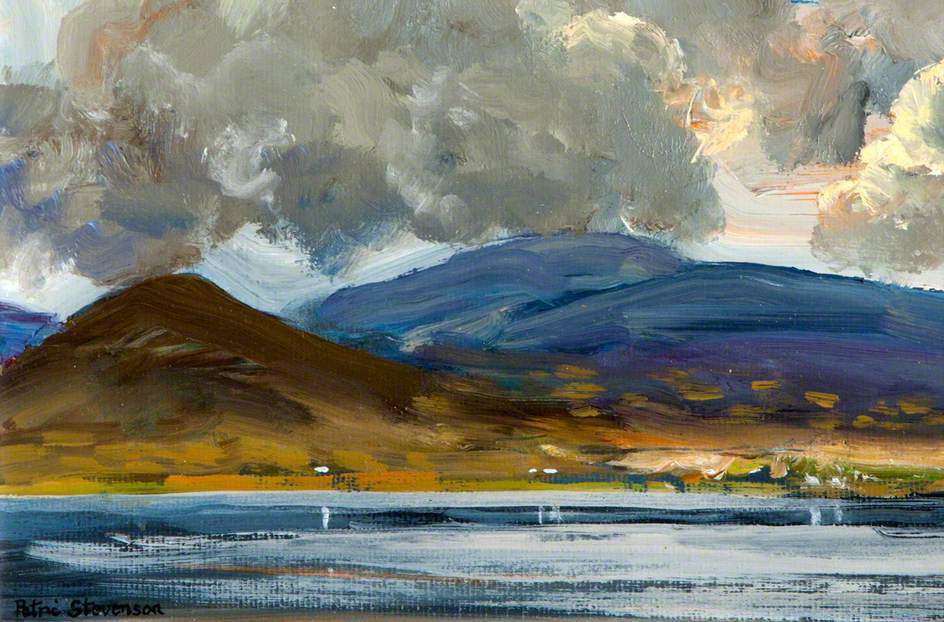BlogStories, Research & Projects
|
|
At the start of this month, I began the Music Bridge programme training in association with Musicians Without Borders (MwB), an international organisation that uses the power of music to bridge divides, connect communities, and heal the wounds of war. I'll be writing about my personal experience during the training later this month, but you can read MwB's full blog on the course here. One young woman remarked how the music workshops helped her to express what was inside of her, which she felt was not easy to do under regular circumstances. The fact that she was able to tap into this source of confidence in the context of a completely unfamiliar situation is a testament to how music can help people to transcend barriers within themselves as well as in society at large.
0 Comments
Written by Michael George Crawford from Warrenpoint. First published by V. G. Havern [Warrenpoint] and printed by Outlook Press [Rathfriland] in “Legendary Stories of The Carlingford Lough District (1913)” Adapted by Dónal Kearney (2016) I. The Miller’s Daughter On the shores of Mill Bay at the foot of the Mourne mountains, there stood a well-known hostelry named the “Wheatsheaf Inn”. It was owned and managed by a man called John MacCeon, who was also The Miller of Mill Bay. His mill gave work to the men of the place – MacCeon’s employees lived in the row of white-washed thatched cabins by the shore, with their beautiful flowery gardens before the doors. It might with truth be said that the little village was the mill and the mill was the little village. Not far from Mill Bay lived a number of fishermen who sailed into the Irish Sea in their lug-sailed vessels. Casting their nets, they trawled for a rich harvest from the mighty deep. And a treacherous and relentless giant they found it - they call it Manannán, the son of the sea, with whom they had to fight hard and wrestle long merely to wring a simple livelihood from its dark, mysterious depths. The fishermen knew by harsh experience all the sea’s varying moods and tempers. Its sound was ever in their ears; in fine weather lapping gently the sandy shore of Mill Bay, as harmless as an infant. But when aroused by the rough winds, it swirled fiercely up the beach and lashed the coast with fury. The sea sometimes caught hold of their fishing vessels, destroying them with pitiless cruelty. Such tragedies happened frequently, but still it must be risked to win bread for their families. If anything happened to the local fishermen over the years, it must be said that the miller was always first to bring relief to their widows and orphans. Mary MacCeon was born on eleventh of January, the day before the annual January Fair Day in Greencastle. That winter, an old astrologer had come to the Fair to foretell events and spay people’s fortunes. He was staying in the Wheatsheaf Inn at the time. On hearing about the local birth, he arose and, wrapping his cotamore around him, went out in the night. Under the cold, clear winter sky, he studied the planets for some time attempting to cast Mary’s horoscope. Coming indoors after some time, he wrote his message from the stars on a slip of parchment and sewed it up in a little satchel. He told nobody about what the fates had in store for Mary but gave the little scroll to John MacCeon to keep until her twenty-first birthday. He warned John particularly not to open it himself, nor to let anyone else interfere with it until that day came around. Although they all felt curious to know her destiny, still they feared to go against the astrologer’s commands – and they were faithfully kept. The father locked the satchel up in his trunk to keep it from prying eyes. It was well they didn’t know its contents for, though we may plot against fate’s decree, we cannot evade or outwit it, nor prevent the doom pronounced by perverse destiny – no matter how hard we strive. Two decades later, by the time we visit Mill Bay for the present story, John MacCeon’s wife had passed onto the next world, and his only child, Mary, had taken her place in the home. Mary attended the Wheatsheaf bar and was well-known to visitors to the Fair. She was the acknowledged belle of the village – and beyond! Indeed, the famous melody “The Maid of Mourne Shore” was composed in her honour by a local poet, who emigrated to American – one of her numerous admirers. Ye hills and dales and flowery valesthat lie around Mourne shore Ye winds that blow over Martin's Hills will I ever hear you more Where the primrose grows and the violet blows and the sporting trout there plays With line and hook delight I took to spend my youthful days. Last night I went to see my love, to hear what she would say; Thinking she would pity me lest I should go away. She said: 'I love a sailor; he's the lad that I adore; And seven years I'll wait on him; so trouble me no more.' 'Perhaps your sailor may be lost when crossing o'er the main, Or otherwise has fixed his mind upon some comely dame.' 'Well, if the sea proves false to me, no other I'll enjoy; For ever since I saw his face I loved my sailor boy.' Farewell now to Lord Edmund's groves, likewise the Bleaching Green, Where the linen webs lie clean and white, pure flows the crystal stream Where many's the happy day I spent; but, now, alas! they're o'er, Since the lass I loved has banished me, far, far from Mourne Shore. Our ship she lies off Warren's Point, just ready to set sail, May all Goodness now protect her with a sweet and pleasant gale, Had I ten thousand pounds in gold, or had I ten times more, I would freely share with the girl I love - the Maid of Mourne Shore. II. The Fisherman Mary was well-loved by all the inhabitants of the hamlet. In turn, she had a kind word for everyone and greeted customers with a smile for the benefit of the Inn. However, she herself was devotedly attached to a local young fishing-skipper. Young Joseph MacCunigem owned a fishing lugger and a farm on the road to Greencastle. He was all alone in the world, his father and brothers having paid the deep sea’s toll going down in a storm in the Irish Sea a few months previously. His mother died soon after, heart-broken at the loss. The men of the Mourne sea-coast are toilers of the land as well as the sea, skilful with the nets and steady at the plough. Joseph worked hard at both to amass some money before marrying Mary. Though she was well-to-do, he wished his own affairs to be in a flourishing condition also, and good luck seemed to favour him in all his undertakings. He consistently made good and profitable catches of fish with his lugger, and the crops on the farm fetched high prices. As the year drew to a close, he felt proud of his efforts and dreamed of the not-so-distant day when the Maid of Mourne Shore should be his wife. But “man proposes, God disposes”. Mary’s father was seriously ill on the day fixed for the wedding ceremony to take place. It was postponed until late January, after the excitement of the great winter Fair subsided in Greencastle. This postponement was fated to mean much, as events proved. III. A Farewell On the morning of the tenth January, Joseph went out trawling with the winter fleet for a final haul before his wedding. As the boats sailed off, he waved his had to Mary as she stood on the pier watching their departure. She thought of his final words to her: he promised to be home on the evening tide of the eleventh of January, the eve of the Fair – be the weather stormy or calm. By dusk on the day the fishermen left, Manannán was beginning to stir from his calm and slowly started to conjure up a hurricane. Within an hour, the waves were high and fierce and the storm had come on so suddenly that the trawlers found themselves caught in the tempest. The fishermen made for the closest port possible. When all the names of the returned trawlers were ascertained later that night, it was found that one boat was still missing: it was Joseph MacCunigem’s boat, which was rather small for the trawling trade. It was last seen when the storm struck the fleet, but the boats lost sight of each other in the gathering darkness. After word travelled across the coast, it was found that the missing vessel had not come in to any cove or sheltering harbour along the Mourne shore. Word spread as the truth was fully realised: young Joseph’s boat had foundered in the storm and the whole crew were lost. IV. The Eve of the Fair When the news reached Mill Bay on the morning of the eve of the Fair, Mary refused to believe the awful tidings. She could not accept that she had looked on her lover’s form for the last time on earth, nor that his boat would never again, like a bird on the billows, drift with the tide into the kindly shore of Mourne. Throughout the day, Mary thought of Joseph’s parting words. He had told her that he would come home with the flowing evening-tide on the Fair-eve, calm or storm. He had always kept his word and Mary felt he would keep it today – on the eleventh of January, the day before the great Fair. As that long day drew on, she would not see anyone. She refused to step foot behind the bar in the Wheatsheaf Inn. Instead, she shut herself away and thought about how she would walk into Greencastle, arm in arm with her Joseph, laughing at children’s games and petting animals at the fair. Throughout the day, the winds raged and the waves rolled mountains high. With Joseph’s final sentiment still fresh in her mind, Mary left the miller’s house and went down to the sea-shore with a gut instinct that something was about to happen. Believing it to be a natural sign of the homecoming of her lover, Mary made her way across the sands and eagerly scanned the incoming tide, flowing rapidly over the shore. Nearer and still nearer came the huge white-topped waves, until they reached where she stood. At that moment, one enormous billow dashed a dark object in to her very feet; something still and awful, with livid lips and wide staring eyes. It was the corpse of her lover. By one of those strange freaks of fate that sometimes puzzle us, Joseph was washed into his native bay at the time he had promised to return. Although a corpse, the man had hit the tide. The shore was slightly raised where Mary knelt by her lover’s body. In her grief, she forgot about the high tide that was creeping slowly and stealthily past her on each side. The streams soon joined behind her, thus completely surrounding her as she knelt by her lover’s corpse. The sea continued to creep up on them and washed over the corpse, as if reclaiming Joseph for Manannán’s depths – to recover him to his brothers and his father. Only at this point did Mary feel the cold of the January water seeping through her dress, and she sharply realised the danger – but it was too late to escape. A wild rush of surf swept her off her feet and onto her back, clinging to Joseph’s bloated body, before dragging her under the deep. After a few minutes of unsettling calm, the sea smoothly receded from the shore and left behind the pair lying peacefully in the rocks. From the crack of dawn, locals began to make their busy way across the shore to the Fair at Greencastle. Stopping at a nook in the rocks to play, a young girl peered down onto a horrifying scene with her tired morning eyes. Hearing her scream, the girl’s mother ran to her and they both gathered round the lovers, now nothing but figures half-strewn with wrack and sand. The lovers were carried to the Inn, a crowd passing along in solemn procession; the terror-stricken faces indicated who had realised what had taken place. Silence accompanied the bodies as they moved slowly through Mill Bay. When they were lifted through the doors of the Wheatsheaf Inn, John MacCeon gave one shrill cry of horror before falling lifeless on the floor. V. The Horoscope A few days after the tragedy, the satchel was taken from the chest, where it had lain ever since the old astrologer had given it to the miller after casting the girl’s horoscope twenty-one years ago. An awed but curious crowd now gathered in the Inn to see what the mysterious paper contained. With great care, they cut the stitches on a small piece of parchment, folded neatly within. It was unfolded and spread out upon the table, where (after some difficulty) they were able to decipher its contents: the star-gazer’s prophecy for Mary’s life - “This girl shall be drowned on her twenty-first birthday.”
-THE END I started working for Front Line Defenders almost exactly two years ago. It was my first job after finishing my Master's at the Irish Centre for Human Rights. On Wednesday 4 November, I gave the cultural presentation at the 8th Dublin Platform for human rights defenders at risk. It was a privilege for me to join this amazing event in such a capacity.
I performed four traditional Irish songs and spoke about the role of the human rights defenders at storytellers. Now we must listen as they pass on their story during this global human rights event. |
AuthorDónal Kearney Categories
All
Archives
February 2018
|




